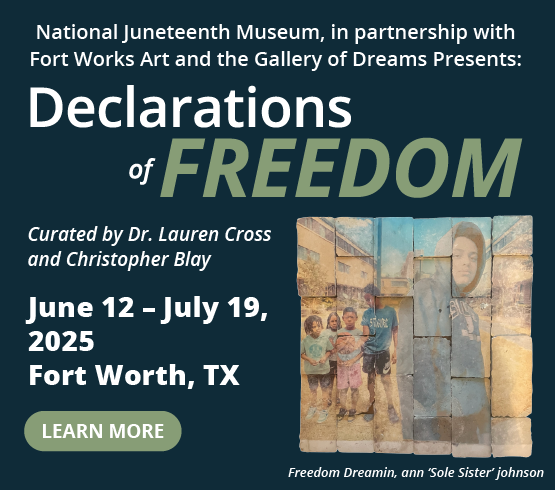Nothing says summer in Dallas quite like Shakespeare in the Park. For 50 years now, the Bard of Avon’s fans have been unfurling blankets, laying out picnics, and popping the corks on glistening bottles of chilled wine before enjoying an evening of iambic pentameter under the stars.
“Bob was driven by two visionary goals: to make Shakespeare available to everyone, and to make it as entertaining as it was to its Elizabethan audiences,” says his wife, Sigrid. “Remarkably, Shakespeare Dallas continues after 50 years to expand on that vision. If only he were here to celebrate those 50 years, Bob would be so grateful and so proud to be a part of an enduring gift to the people of Dallas and beyond.”
Raphael Parry, the current executive and artistic director of Shakespeare Dallas, had his first brush with the Bard in 1985 when he joined the company’s bus-and-truck touring production of Twelfth Night. A co-founder of Undermain Theatre and then a co-artistic director with the late Katherine Owens, Parry was free during Dallas’ hottest months—Undermain’s Deep Ellum performance space didn’t have air conditioning, so it closed for the summer season.
Various guest acting spots followed, including one extremely memorable production of The Merry Wives of Windsor in 1993 where “I learned how to ‘speak Shakespeare’ from future Tony winner Deanna Dunagan,” Parry says. “She instructed me on blank verse and iambic pentameter; it was very generous of her. I’ve been working on Shakespeare for three decades now and it’s still opening up to me.”
Star power was one of Glenn’s early goals, and over the years everyone from Sigourney Weaver and Morgan Freeman to Alan Tudyk, Tyrese Allen, and William Jackson Harper have trod the Shakespeare Dallas boards.
It was in 1996 that Parry started directing, with the romantic romp A Midsummer Night’s Dream. As coincidence or fate would have it, Midsummer is part of the company’s 50th anniversary season and Parry is once again directing. The Tempest, directed by Jenni Stewart, rounds out the summer and Hamlet, directed by Christie Vela, will play in the fall.
“I have directed most of the major plays and acted in many of them, so now I’m revisiting,” Parry says. “It’s a reawakening. I can see different things in each of them now that I’m older.”

1 ⁄9
Shakespeare Dallas founder Bob Glenn. Photo courtesy of Bob Smith & Laura Garza.

2 ⁄9
Morgan Freeman in the 1982 production of Othello. Photo courtesy of Tom Geddie.

3 ⁄9
Randy Moore and Nance Williamson in the 1993 Shakespeare Dallas Production of Richard III. Photo courtesy of Linda Blase.

4 ⁄9
The cast of the 1976 Shakespeare Dallas production of Twelfth Night. Photo courtesy of Bob Smith & Laura Garza.

5 ⁄9
Earle Hyman rehearsing the 1987 Shakespeare Dallas production of King Lear. Photo courtesy of Shakespeare Dallas.

6 ⁄9
An Evening of Shakespeare at the Fair Park Band Shell in 1972. Photo courtesy of Shakespeare Dallas.

7 ⁄9
(Shawn Gann (red coat), Ethan Norris (space suit) and Christopher Piper (knit hat) in the 2019 Shakespeare Dallas production of Hamlet. Photo by Linda Blase.

8 ⁄9
Shawn Gann, Marti Ethridge and Ryan Matthieu Smith in the 2021 Shakespeare Dallas production of The Complete Works of William Shakespeare Abridged. Photo by Linda Blase.

9 ⁄9
The cast of Romeo and Juliet in the 2021 Shakespeare Dallas Production. Photo by Linda Blase.
Come 2008, Parry and then-associate artistic director Stewart were the only original staff members left. That’s when the board asked Parry to add “executive director” to his title. It was fairly unusual for one person to handle both the artistic and business sides of a company, Parry notes, but he had essentially already been managing Undermain Theatre for the past 15 years. So he and Stewart set out to plan how Shakespeare Dallas could move beyond the park and further into the community, and the company’s already impressive education program began to grow.
Today there is a wide breadth of in-person and digital educational programming for grades 2 to 12, with summer camps, after-school drama classes, and special student matinees with post-performance talkbacks and educator resources. Since its inception in 1984, these programs have served over 600,000 students in North Texas and are some of the only in the area based on the works of Shakespeare that are designed using the Texas Essential Knowledge and Skills (TEKS) standards.
“If we can lower the threshold of fear of Shakespeare early on, then we have a patron for life,” says Parry, who hopes to also bring back the adorable “Bard Bucket” tradition of youth volunteers collecting donations before shows, which COVID put on pause.
A devastating amount of damage occurred to Shakespeare Dallas’ buildings during the 2021 ice storm, but the company has been working with the City of Dallas to rebuild, upgrade, and improve their infrastructure and equipment. Hopefully an upcoming bond project and overhaul of Samuell-Grand Park will result in cosmetic changes that the audiences can also enjoy—like shade over the seating area, a concession stand with a kitchen, and new front of house building—something that Parry says hasn’t happened in more than 20 years.
But for now the most important thing is that Shakespeare Dallas is still here. In its five decades, the company has entertained more than 600,000 audience members, performed more than 133 productions, created more than 6,000 unique costumes, and provided jobs to over 4,000 artists. After all: “All the world’s a stage, and all the men and women merely players.”
—LINDSEY WILSON




